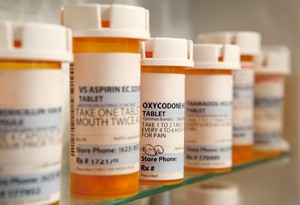The Drugs Don't Work
 |
Making pharmaceutical drugs was, for a long time, a manual process, but these days to avoid contamination and improve accuracy, the US Federal Drug Administration (FDA) insists that the process is fully automated in order to improve accuracy. In developed markets like the US this isn’t a problem for the large pharmaceutical companies, but in countries that want to get in on the lucrative business of producing over the counter (OTC) drugs like aspirin it’s a huge barrier to entry.
Forty percent of OTC drugs in the US are made in India, but recently FDA inspections have become stricter and despite an abundance of labor, these manufacturers have decided to invest millions of dollars and automate the process. The reason for the recent strictness is due to many anomalies found in a recent report where stated that “files that were "too numerous to count" in one of the laboratories. The inspectors also found that workers tended to retest drug samples "until acceptable results are obtained" and deleted evidence of failed tests, according to the inspection report.” By automating the processes these sorts of discrepancies can be avoided.
The manufacturing of drugs is a complicated process but in India, where labor is cheap, new manufacturing plants are automating the entire process by using machines to store and retrieve the raw ingredients and turn them into finished drugs using preloaded recipes. By removing people from the equation, precise measurements of the compounds are made quicker and with much greater precision than was otherwise possible and thereby ensures that by scanning the tablets they meet their specified weight and hardness. It also means that the equipment is stored in a 100 percent sterile room which means thatthere is far less risk of contamination.
The building of these new factories isn’t cheap, but the riches to be held are enormous and Indian companies are keen to get in on the action. |